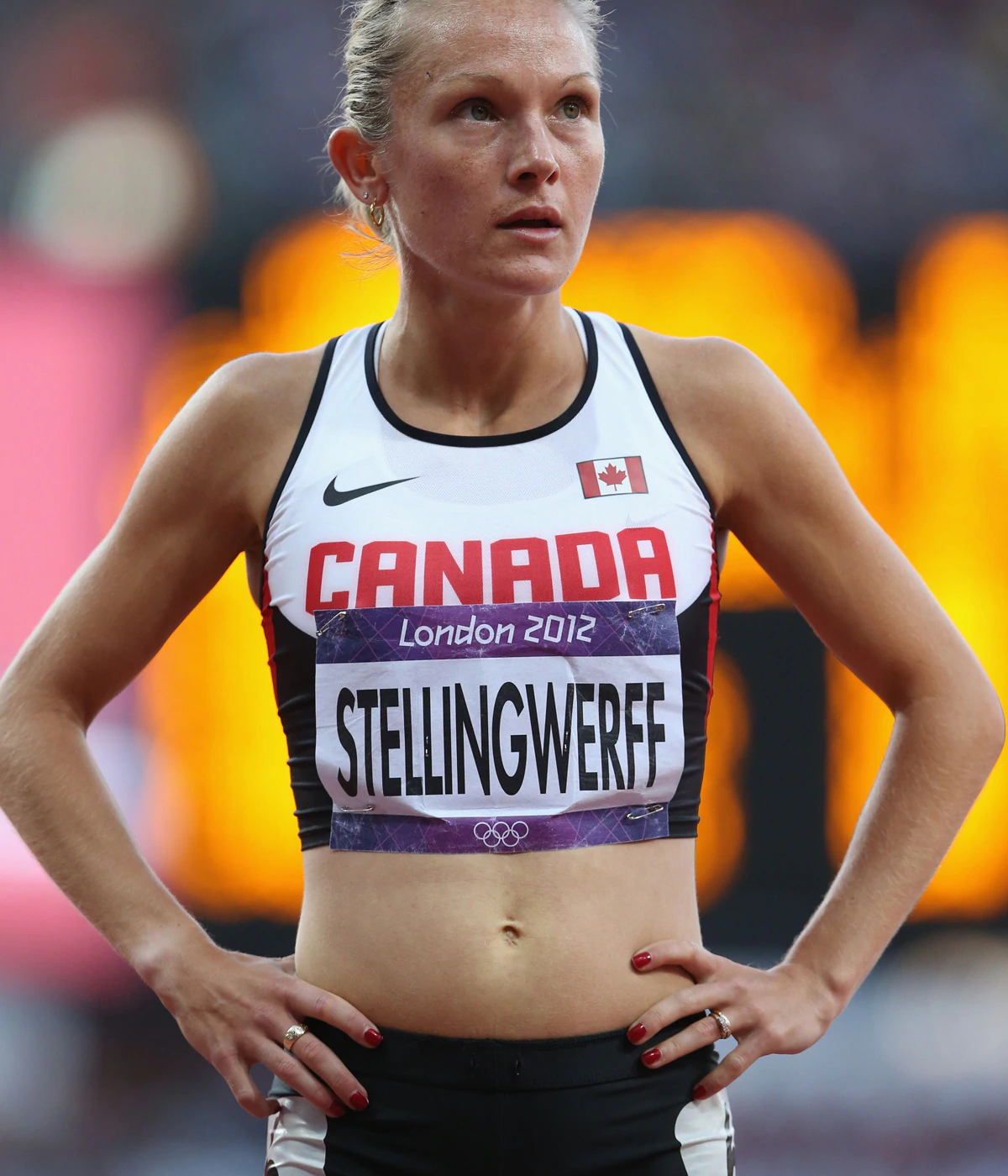
‘We still have work to do,’ says Canadian distance runner Hilary Stellingwerff
By David Giddens, CBC Sports
May 10, 2020
“A baby is not an injury.”
Canadian freestyle wrestler Jessica MacDonald is summarizing her life as a competitive mother. In December 2015, MacDonald and her husband decided it was time for kids. They had been married seven years, and delayed getting pregnant because MacDonald was focused on wrestling. She had accumulated enough competition points to be among the names submitted to Sport Canada for continued “carding,” as federal funding is known. But that did not happen.
In December 2016, two months after giving birth to her daughter by emergency C-section, MacDonald started wrestling and training again. “I don’t think I realized at the time how dangerous it probably was, but I was extremely determined that I was going to make that world team again. I wanted to get my funding back.”
Like most Canadian national sports organizations (NSOs), Wrestling Canada at the time allowed athletes one opportunity to pause their training for a medical issue while continuing to receive funding. But under this policy, pregnancy is lumped in with a torn ligament or knee surgery.
“Whenever has a pregnancy been labelled an injury or an illness?” the Windsor, Ont., athlete asks. “It’s not an illness and it’s not an injury. It’s a pregnancy.”

Jessica MacDonald pictured celebrating her 2013 world wrestling bronze. (Attila Kisbenede/Getty Images)
Women who are lucky enough to never be sidelined for health reasons could use that single injury funding opportunity for one pregnancy during their career. Men never face this situation, so there is a fundamental difference in the way male and female athletes are funded in Canada.
Wrestling Canada Lutte executive director Tamara Medwidsky says the challenge with “injury cards” is when injury, illness or pregnancy occur in consecutive years. This can impact an athlete’s “ability to demonstrate consistent and improved international performance, one of Sport Canada’s main AAP [Athlete Assistance Program] objectives.”
AAP funding, which defrays athlete’s training and competition costs, is distributed by the federal government to National Sport Organizations, and it is up to each of these to determine their policies. “It is also their responsibility to develop the criteria that apply to injured, ill or pregnant athletes.” says Amélie Desmarais, spokesperson for the Department of Canadian Heritage.

MacDonald, seen competing at a 2012 event in Tokyo, says Canadian male and female athletes need to have access to equal funding. (Kyoshi Ota/Getty Images)
Beginning in spring 2019, CBC Sports contacted more than 20 Canadian sports federations for comment on maternity funding for athletes. Six of them described having carding policies based on Sport Canada’s model. The remainder declined comment.
The CEO of Swimming Canada says what matters most is having good protocols for helping women return to competition after having a baby. Ahmed El-AwadiIn says no athletes have become pregnant during his eight-year tenure, but anyone who does would continue to be funded, and their medical team would be involved to determine how long that athlete could train while pregnant.
Carding for national athletes ranges between $1,060 and $1,765 per month. Other factors – such as moving from development to senior carding, or being in the NCAA, or reaching a Top 5 world ranking – can alter the allowance, but that is the general range.
Wrestling Canada updated its policy following MacDonald’s case. Its athletes can now continue to receive funding through two injuries, two pregnancies, or one of each. “Jessica’s situation was unique, given the timing of her previous injury and subsequent pregnancy,” Medwidsky says. “Following discussions with Jessica, WCL recognized that additional considerations needed to be made, including additional provisions and language around pregnancy, which were incorporated into a revised policy.”
MacDonald commends the additional injury card, but still sees a discrepancy in the way male and female athletes are treated. She felt she had a solid case to take to dispute resolution, but the legal fees made it too much of a gamble.
“We decided we’re better off to walk away from this than to fight it because it’s not even what I want right now. All I want to do is help. I just want to be the best in Canada.” MacDonald continued training at maximum intensity toward the 2020 Olympics. In March, she fell to American Sarah Hildebrandt in a semifinal loss at the Pan-American Olympic Wrestling Qualification Tournament in Ottawa.

Stellingwerff, front, fought to get her funding back. (Sean Kilpatrick/Canadian Press)
Human rights ruling
Distance runner Hilary Stellingwerff competed for Canada in the 1,500 metres at the 2012 London Olympics. Two years later, at 34, she had a son and continued to receive her funding, as one of six “senior injury” cases listed by Athletics Canada. But in June 2015, after resuming training, she got injured and lost her funding.
“I felt that this was a human rights issue that my male counterparts weren’t going to be dealing with the same situation,” she said. “Any female would have to choose from injury or pregnancy – and, of course, you don’t choose to get injured. I thought this is discriminatory against women because it isn’t the same case for males.” Stellingwerf believes there need to be changes at Sport Canada to secure women’s rights. She took her case to arbitration.
In the 2016 final ruling, arbitrator Carol Roberts wrote: “The AAP [Sport Canada’s Athlete Assistance Program] policy of

